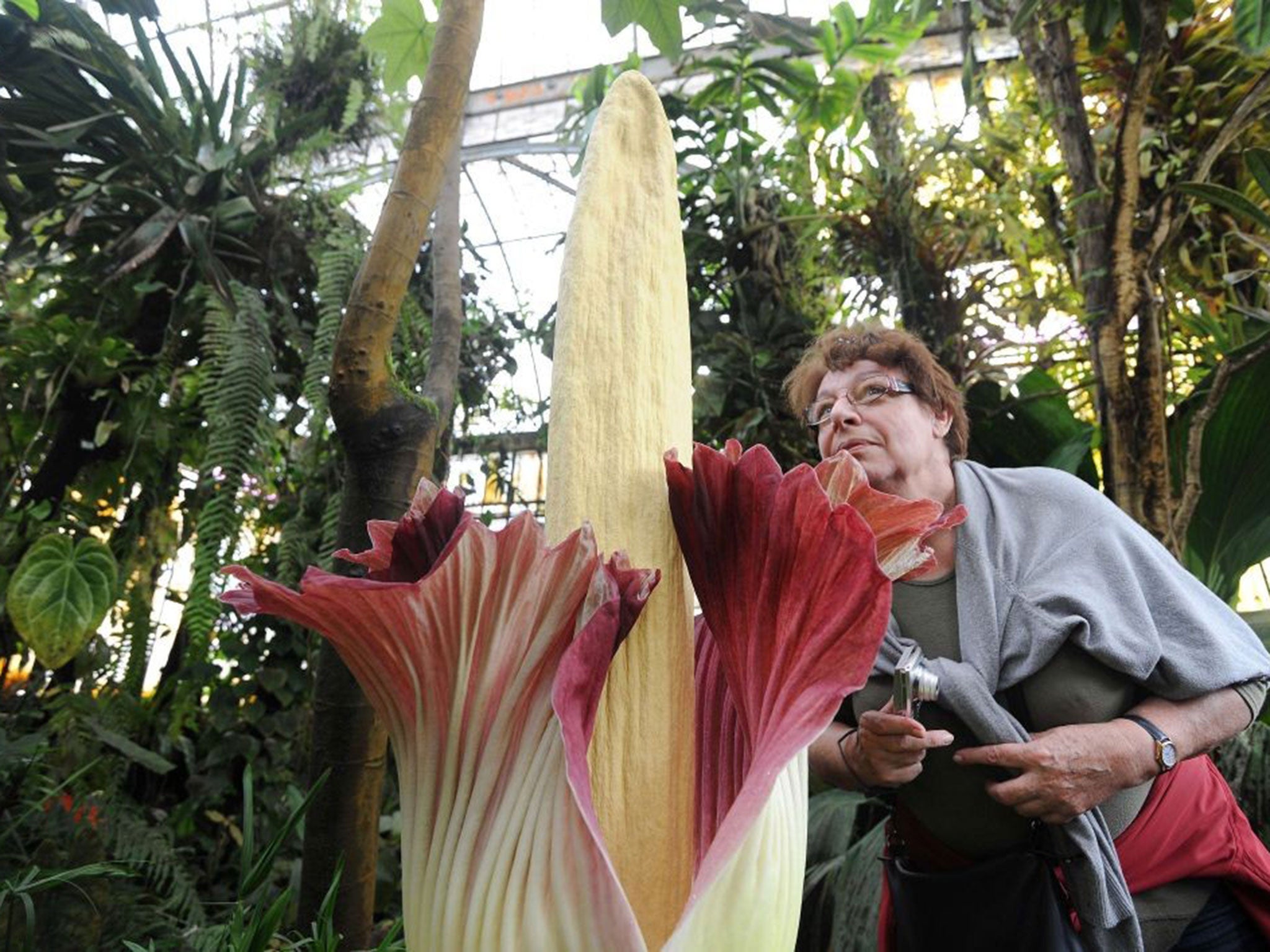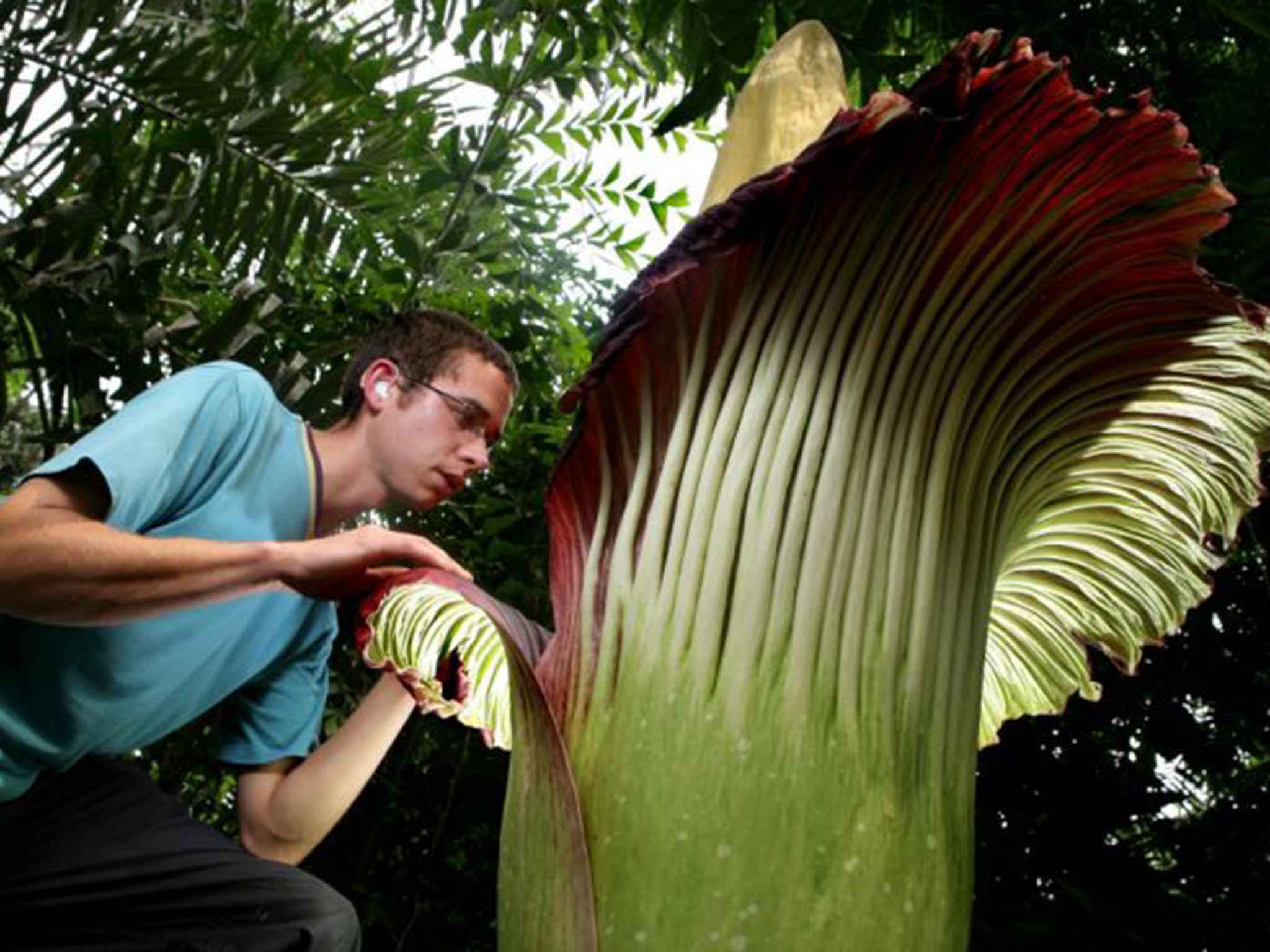Rare 'corpse flower' blooms for the first time in 11 years
The flower is a 'titan arum'

Your support helps us to tell the story
From reproductive rights to climate change to Big Tech, The Independent is on the ground when the story is developing. Whether it's investigating the financials of Elon Musk's pro-Trump PAC or producing our latest documentary, 'The A Word', which shines a light on the American women fighting for reproductive rights, we know how important it is to parse out the facts from the messaging.
At such a critical moment in US history, we need reporters on the ground. Your donation allows us to keep sending journalists to speak to both sides of the story.
The Independent is trusted by Americans across the entire political spectrum. And unlike many other quality news outlets, we choose not to lock Americans out of our reporting and analysis with paywalls. We believe quality journalism should be available to everyone, paid for by those who can afford it.
Your support makes all the difference.A rare "corpse flower" which emits the smell of rotting flesh is expected to attract thousands of people after it bloomed for the first time in 11 years.
The titan arum flowered on Saturday afternoon at the Cambridge University Botanic Garden.
Lasting for just two days, the flower emits its smell – described as “rotten eggs” and a “dead donkey” – to attract pollinators.
Nearly 1,000 people queued up to catch a whiff of the smell in the first four hours after the flower bloomed, the BBC reports.

Many more are expected, with the garden staying open until 10pm tonight to meet demand.
A live webcam which has been streaming footage of the foul-smelling plant crashed several times as enthusiasts logged in to view its progress over the last week.
The flower – full name Amorphophallus titanum – has taken its time to open and been nicknamed “Tiny Titan” as it is much smaller than other in its species.
It emits its smell mainly during the night by heating itself up to 40C.
Professor Beverley Glover, director of the garden, told the BBC: “The heat helps to distribute sulphurous compounds - the atrocious stench - across vast distances in its native Sumatra to lure its pollinators, thought to be carrion beetles and blowflies.
"The stink, which comes in pulses through the night, has been described as being like 'rotten eggs', 'dead donkey', 'dirty laundry' and 'smelly feet'.”
Join our commenting forum
Join thought-provoking conversations, follow other Independent readers and see their replies
Comments